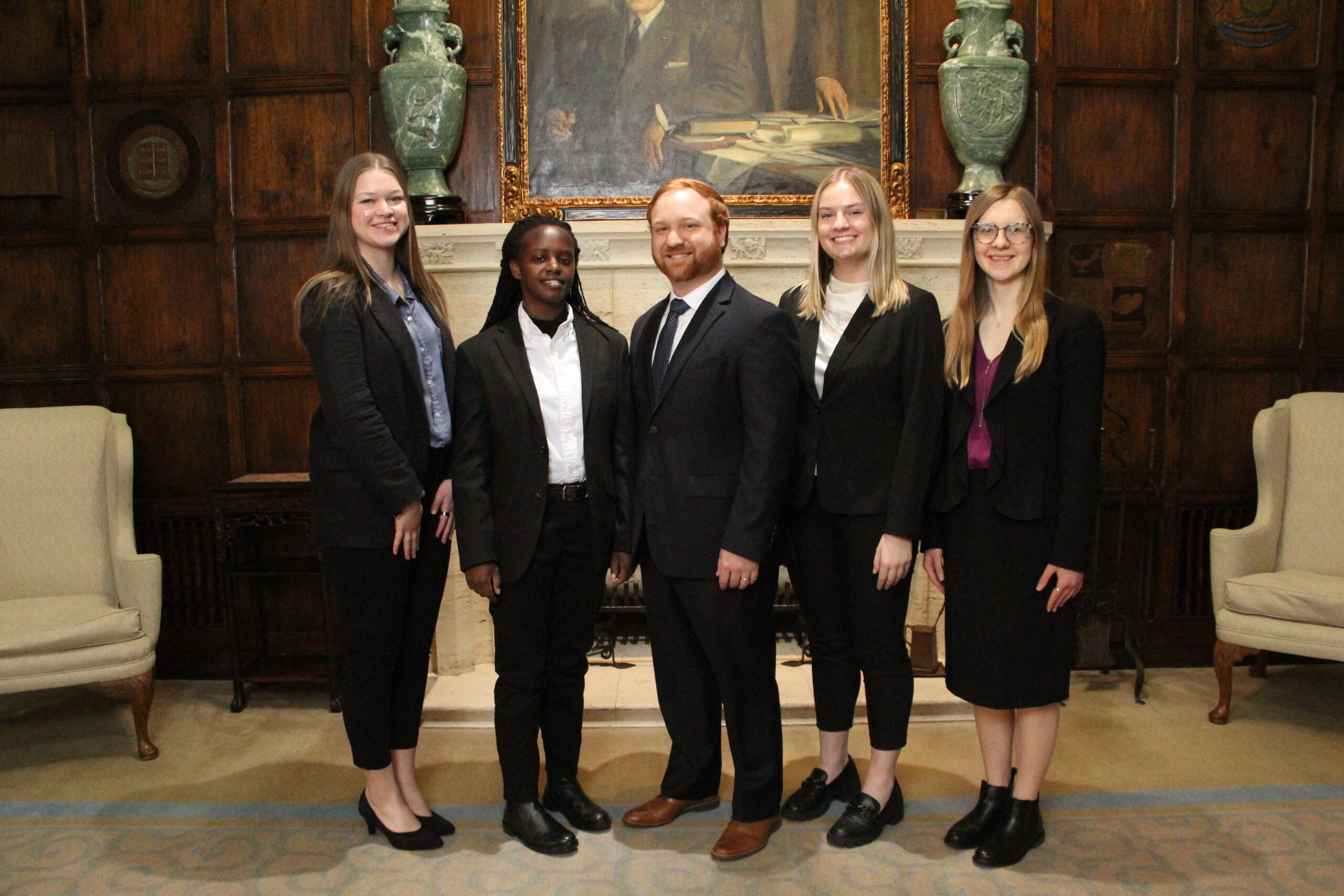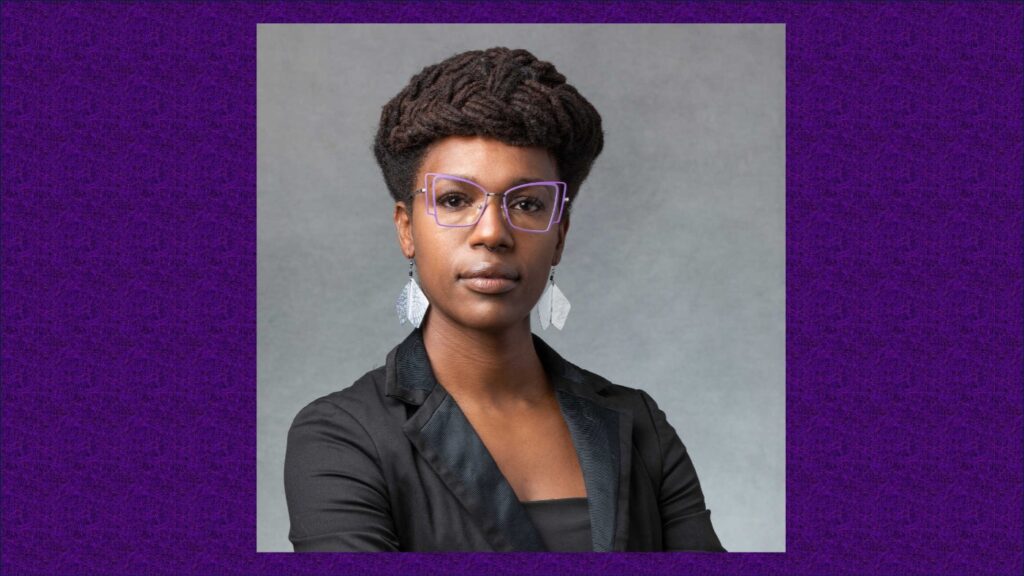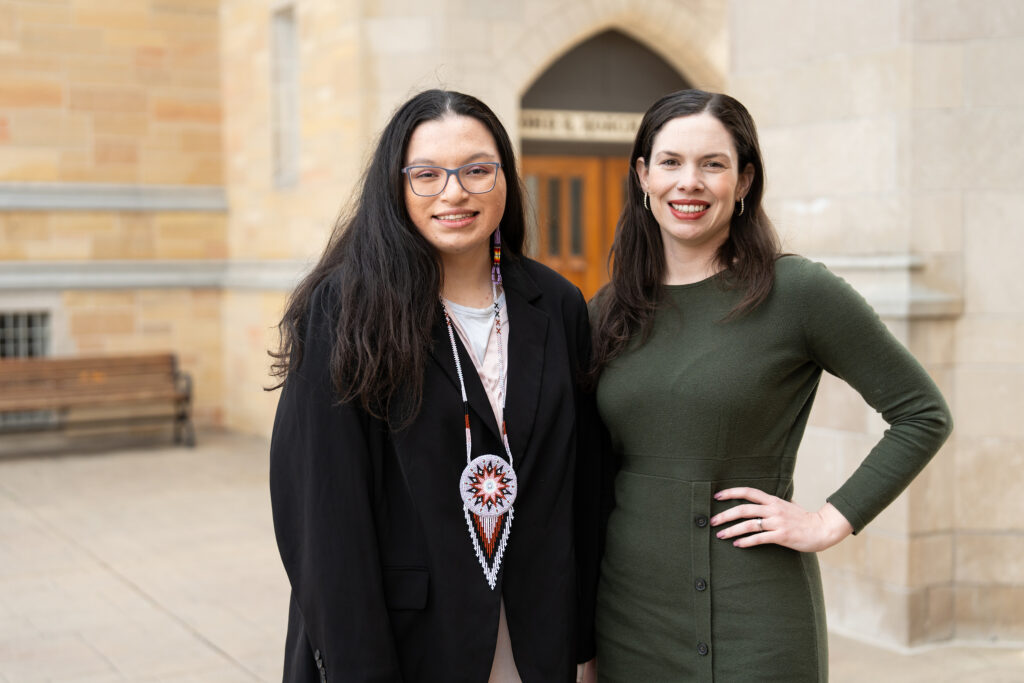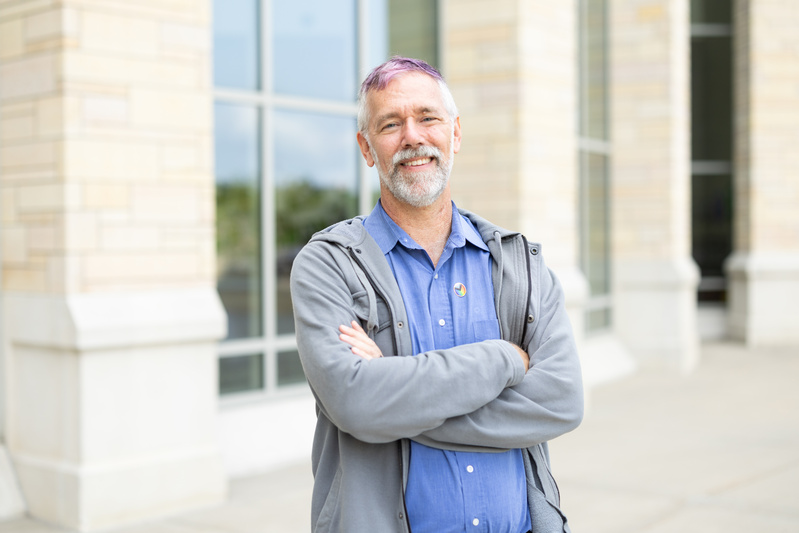Four University of St. Thomas students, all from different majors and backgrounds, came together for months to do something extremely unique and challenging. Through experiential learning program Innovation Scholars, the team was assigned a project to work on for Mayo Clinic.
Kiersten Hamby ’24, Mellissa Ingabire ’24, Elsa Lillegard-Bouton ’25 and Alena Wadzinske ’25 make up the university’s Innovation Scholars team. Through Innovation Scholars, a program offered for Minnesota’s private colleges and universities, students tackle real-world technology challenges within biomedical and health care fields.
For Mayo Clinic, the St. Thomas students tackled a challenging tech transfer project focused on a novel method for enhanced magnetic resonance imaging. The team presented its recommendations to Mayo Clinic licensing managers and innovators March 1.
Benefits of diverse backgrounds
The St. Thomas students, with majors from data analytics to mechanical engineering to public health, brought varying skills that were essential to the project’s success.
“The different academic backgrounds made this project possible: Each team member brought their own expertise to lead and teach different parts of the project,” Wadzinske said. “As someone with a life science and computer science background, I learned about the business component of bringing innovations to market.”
The undergraduate students did not work completely alone. They were led and supervised by St. Thomas MBA student Nathan Plag, who helped the team with deadlines and communication. This opportunity is beneficial for the MBA students to develop project management skills and leadership. The ability for both undergraduate and graduate students to collaborate is another unique aspect of the Innovation Scholars program.
“I thought it would be a good experience to not only work with Mayo but to work with undergraduates and to connect with the new generation of young professionals that will be entering the workforce,” Plag said.
“Nathan was a super helpful leader throughout the whole process,” Lillegard-Bouton said. “He was always willing to help with our questions and give valuable feedback, which I think will greatly contribute to the success of this project.”
Because of intellectual property concerns, details of the project cannot be fully shared, however, Plag offered a brief overview of the project process.
“Mayo has a patent for a technology, and they want to license that technology to a company and convince that company to pay them to use that patent,” Plag said. “The students had to research what that patent was, what it protects and what it doesn’t, what the applications could be, and how potential licensers and partners could benefit and come up with a business case to sell the patent or license to a licensee for commercialization.”
After working on this project since October 2023, the students delivered a 30-minute presentation and a 40-page paper. The St. Thomas team, along with the other teams, presented at Mayo Clinic to their mentors, the innovators of the technology or patent, the licensing associate from the Mayo Clinic eVentures team, as well as Mayo doctors and Innovation Scholars staff.
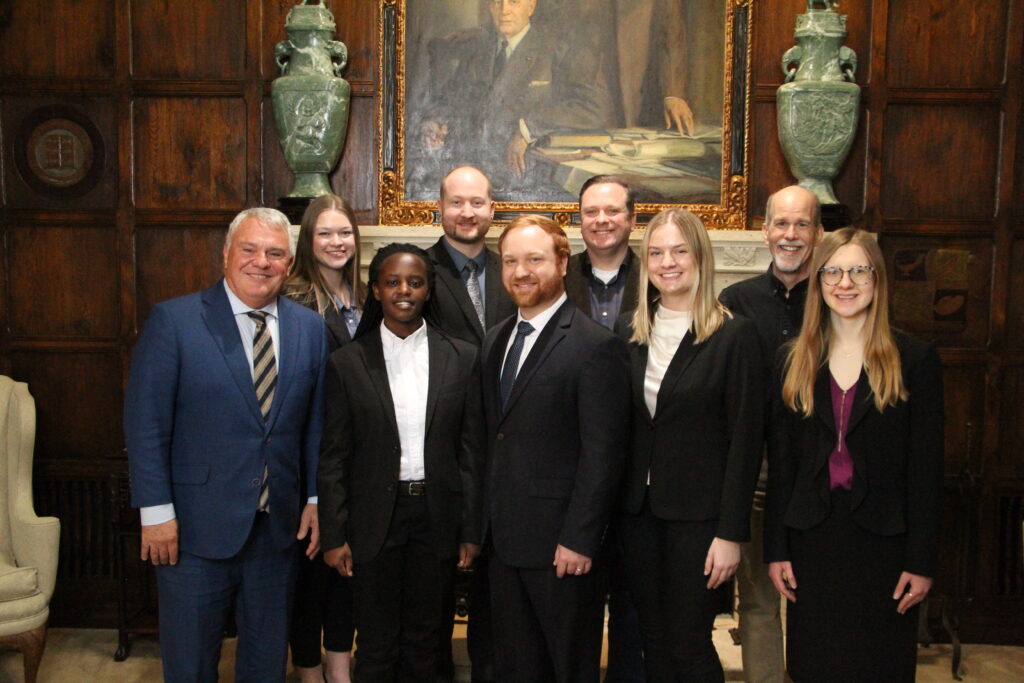
Overcoming project challenges
Throughout this complicated project, there were challenges.
“Understanding how to present our findings to Mayo and the other Innovation teams was a challenge the team faced,” Wadzinske said. “To overcome this challenge, the team applied feedback from a group of professors to tailor our presentation for audience understanding and engagement.”
For further support and guidance through the project, the teams were assigned faculty mentors. The St. Thomas team was assisted by biology professor Colin Martin and marketing professor David Alexander, as well as leadership instructor Steve Vuolo, who oversees all team MBA student leaders. The faculty mentors helped by checking in with the team on deadlines and expectations, but the team needed to work independently and push themselves to their goal.
“This program really fits in perfectly with the St. Thomas mission, particularly with the aspects of thinking critically, working skillfully, and acting wisely,” Martin said. “This is not like a textbook where the answers are in the back and the students can come up with what they think are the answers and then check the real answers. This is a totally free-form type of experience where there is no set goal or hoped-for outcome, and it’s the students who are breaking a path.”
biology professor Colin MartinThis program really fits in perfectly with the St. Thomas mission, particularly with the aspects of thinking critically, working skillfully, and acting wisely.
“This is such a unique thing to write about or to tell people about,” Alexander said. “It really sets you apart. You go in, and you tackle it all on your own.”
The Innovation Scholars program's strength lies in its ability to offer a learning environment that goes above and beyond. In an era where experiential learning is increasingly recognized as a key component of a well-rounded education, this program stands out, providing a platform for students to thrive and excel, ignoring the confines of traditional academic boundaries.
“I think that the program is really beneficial to the undergraduate students,” Plag said. “It's a program I would’ve been interested in as an undergrad and something that I think gives students the opportunity to learn outside the classroom in a way that you don’t often get outside of an internship. It’s a really great program, and I would encourage anyone interested to reach out and ask more about it and try to get involved in the future years.”
Students interested in getting involved with the Innovation Scholars Program can visit the St. Thomas Undergraduate Research Opportunities Program webpage to learn more. Applications open in the fall for the 2024-25 Innovation Scholars Program.
